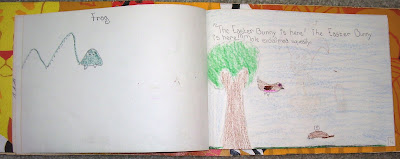I discovered Orville: A Dog Story by accident. I might have been researching the publisher, Clarion, or perhaps I was wandering in the "K" section at my library. Either way, I lucked out. The supreme beauty of Haven Kimmel's Orville is its luscious blend of raw emotion and perfectly chosen words, the essence of a great picture book. And it doesn't hurt that it features a dog, another of my all-time favorite things.
Picture book writers desiring an example of a great first sentence need only look at Orville's. It hits you right between the eyes:
"He was so lost, and had been lost for so long, that when the early April thunderstorm blew in like a freight train, the dog lay down in the culvert, covered his eyes with his paws, and decided to never get up again."
Wow. It's poetry. It's raw. It's literary. And it doesn't stop with the first sentence. There's a great story there, filled with longing, conflict, and resolution. It's a novel in miniature, a love story. Published in 2003 and written for older picture book readers, Orville is not typical of today's lighter, bouncier, funny picture books. It's the kind of book I'd like to have written.
Picture book writers desiring an example of a great first sentence need only look at Orville's. It hits you right between the eyes:
"He was so lost, and had been lost for so long, that when the early April thunderstorm blew in like a freight train, the dog lay down in the culvert, covered his eyes with his paws, and decided to never get up again."
Wow. It's poetry. It's raw. It's literary. And it doesn't stop with the first sentence. There's a great story there, filled with longing, conflict, and resolution. It's a novel in miniature, a love story. Published in 2003 and written for older picture book readers, Orville is not typical of today's lighter, bouncier, funny picture books. It's the kind of book I'd like to have written.









 Page 6. Quick! To your homes!
Page 6. Quick! To your homes! 